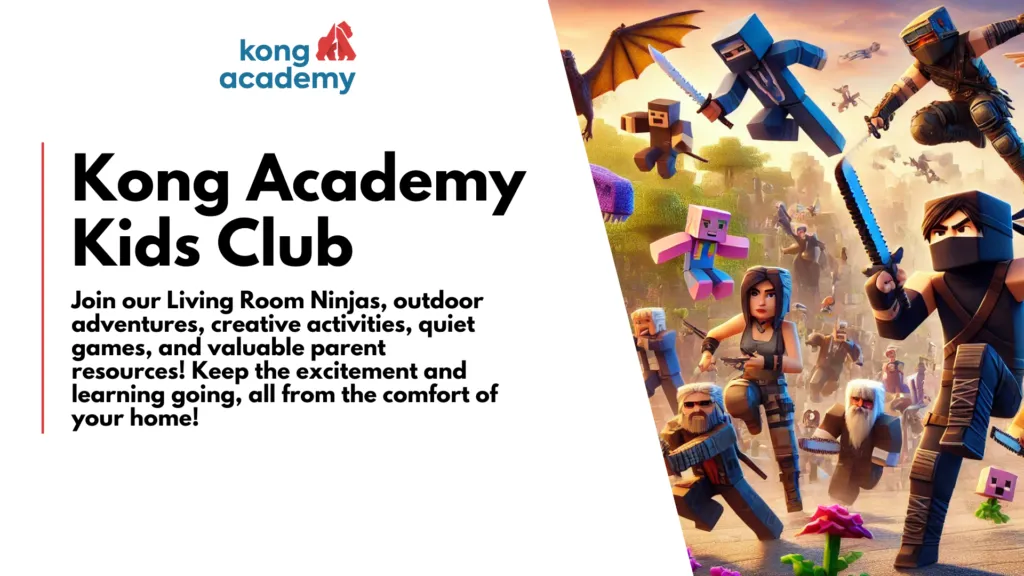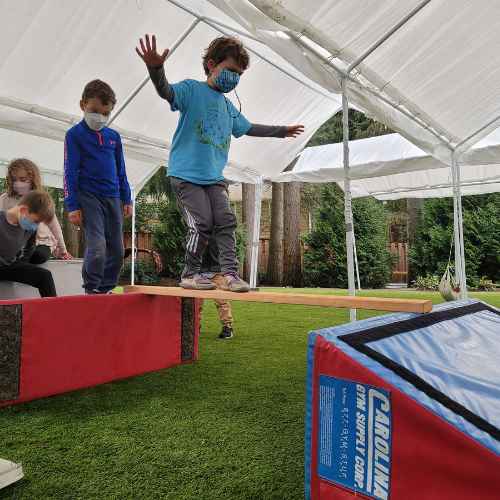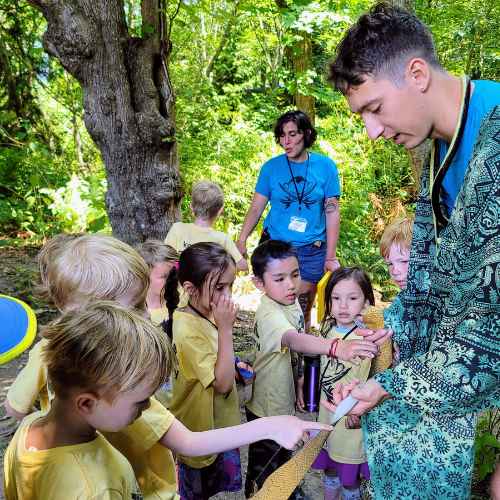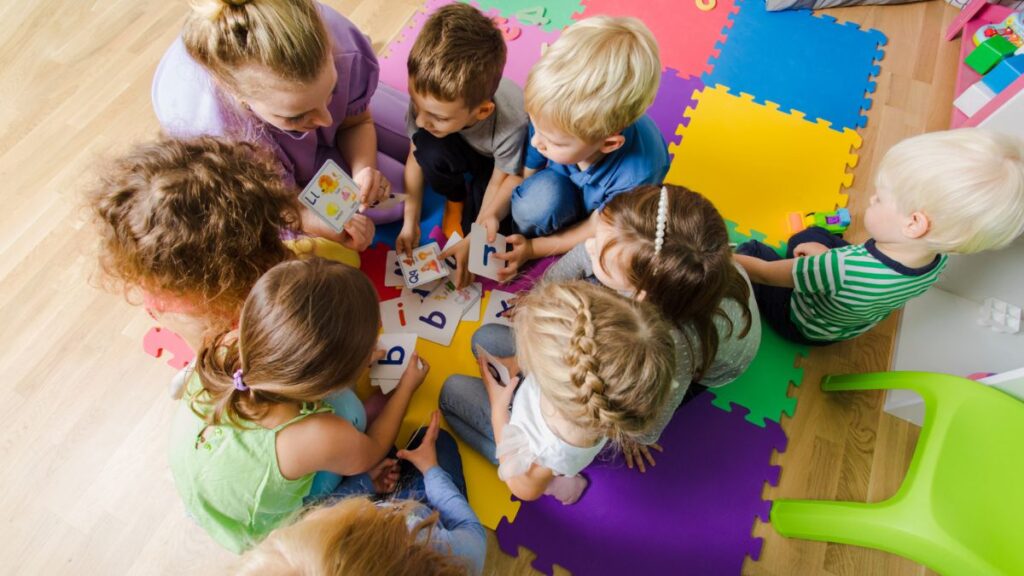
Social skills form the foundation for effective communication, relationship building, and emotion regulation. Teaching them to your kids at an early age is crucial for proper development. These skills help them interact with others, build friendships, and navigate social situations.
While the task may seem challenging, it doesn’t have to be boring or tedious. There are many ways to make the process effective yet enjoyable for your kids. Incorporating social skills activities into their routine is one of them.
In this article, we’ll explore a variety of entertaining social skills activities that provide opportunities for learning and growth. From games that promote teamwork to role-playing exercises that enhance communication, these activities are designed to foster positive social interactions and build confidence in children. The kids will have a great time and learn valuable lessons without even realizing it.
Inclusive Activities For Mixed Age Activities
Engaging children of different ages in social skills activities can be both fun and educational. Creating inclusive activities for mixed-age groups helps children learn to interact with peers of different ages, promoting empathy and cooperation. Here are some great ideas that work well for kids of varying ages:
Buddy Reading
Buddy reading involves pairing older and younger children to read together. The older child reads aloud, while the younger child listens and follows along. Sometimes they take turns reading aloud or listening to the other read. It is a great way to promote literacy. Kids can choose books that match their reading levels and interests, allowing them to engage in a shared reading experience.
This activity helps children learn patience and empathy. The older child practices leadership and mentoring, while the younger child gains confidence and learns to ask questions. Together they develop good communication skills by discussing the story and sharing their thoughts and ideas with their reading partner. Taking turns and listening to each other also promotes active listening skills and a respectful attitude towards each other. Both children benefit from the cooperative nature of the activity, cultivating a sense of camaraderie and mutual understanding.
Collaborative Art Projects
Collaborative art projects involve children working together to create a piece of art. The activity can be about drawing, painting, sculpting, or crafting. Children contribute their ideas and talents to the project, resulting in a shared creation, such as a mural, a large painting, or a collage. Each child can contribute to their individual strength, making it a truly inclusive experience.
These projects encourage teamwork, creativity, and communication. Kids learn to share materials, discuss ideas, and make joint decisions. They learn the importance of listening to others’ input and compromising when necessary. This fosters a sense of teamwork and encourages children to appreciate the contributions of others.
Collaborative art projects also promote empathy and understanding as children learn to respect the ideas and perspectives of their peers, even if they differ from their own. Younger children can learn from older ones, while older children can practice leadership and mentoring skills by guiding younger participants. This fosters a sense of community and mutual support among children of different ages, encouraging them to work together harmoniously despite differences in skill level or experience.
Scavenger Hunts
Scavenger hunts are exciting activities where participants search for specific items or clues within a designated area. To organize a scavenger hunt, create a list of items for children to find or tasks for them to complete. Then, set boundaries for the hunt area and provide instructions on how to play. Participants can work in teams to complete the hunt within a specified time frame. This physical activity can be done in pairs or small groups.
Working together to search for items or solve clues encourages collaboration and cooperation among participating kids. They learn to communicate, share ideas, and listen to others’ perspectives while working towards a common goal. In mixed-age groups, older children can take on leadership roles by guiding younger participants and helping them understand the instructions. This fosters cooperation and promotes positive interactions among children of different ages.
Navigating the hunt also nurtures problem-solving skills as children strategize and plan their approach to finding items within the given time frame. They learn to think creatively, adapt to unexpected challenges, and persevere in the face of obstacles.
Interactive Storytelling or Pass the Message
Interactive storytelling involves children taking turns to create and continue a story. One child starts the story with a few sentences, then passes it on to the next child, who adds to it, and so on. This can be done verbally or with each child writing down their part of the story.
Alternatively, “Pass the Message” involves children whispering a message to each other in a chain, with the last child revealing the final version of the message.
Interactive storytelling teaches children valuable social skills such as active listening, cooperation, and patience. As each child contributes to the story, they learn to listen attentively to what others have said and build upon it, fostering a sense of teamwork and collaboration. This activity also encourages creativity, imagination,and flexible thinking, allowing children to express themselves while respecting the contributions of others.
“Pass the Message” helps children understand the importance of clear communication and the potential for misunderstandings. It also emphasizes the need for attentive listening and accurate repetition, which are key components of effective communication.
Both activities create a fun, inclusive environment where children of different ages can interact, learn from each other, and develop essential social skills in a playful and engaging manner.
Cooperative Board Games
Cooperative board games are games where players work together towards a common goal instead of competing against each other. Examples include games like “Pandemic” or “Forbidden Island.” These games require players to strategize, communicate, and collaborate to achieve a shared objective.
Playing cooperative board games helps children learn important social skills such as teamwork, communication, and problem-solving. The need to collaborate and support each other helps them understand the value of teamwork and how to work towards a common goal. Plus, these games teach patience, turn-taking, and how to gracefully handle both successes and setbacks, which are all crucial components of positive social interactions.
Building Projects
Building projects involve collaborative efforts to create something tangible, such as constructing a fort, building with blocks, or assembling a puzzle. They work together to plan, design, and construct their creation.
The activity provides a rich learning environment where children can develop a range of social skills while engaging in hands-on, creative activities. For one, building projects provide opportunities for children to practice essential social skills in a group setting.
By working together towards a common goal, children learn to share ideas, and compromise with their peers. They develop skills in leadership, cooperation, and conflict resolution while navigating challenges and collaboratively making decisions. Children learn to appreciate the contributions of each team member and celebrate success as a group. The activity also promotes empathy and understanding as children learn to consider the perspectives and needs of others.
Age-Specific Activities Social Skills Activities
Age-specific social skills activities are tailored to the developmental level of children and focus on building skills appropriate for their age group. These activities address specific social milestones and challenges that children typically encounter at different stages of development.
Tailoring social skills activities to different age groups ensures that children can engage at their developmental level. Here are some age-specific activities designed to address the social needs of children at various stages of development:
Ages 4-6
4 to 6 years are ages when kids develop foundational social abilities. Any social skills activity you choose for this age group should be engaging yet developmentally appropriate. They should foster friendships, build confidence, and lay the groundwork for healthy social development in later years. Here are some fun activities tailored to this age group:
The Compliment Circle
The Compliment Circle is an activity where children sit in a circle and take turns giving compliments to each other. Each child receives a compliment and then gives one in return. Everybody receives a chance to be in the spotlight as their peers share positive affirmations about them. This activity is great for building self-esteem and confidence in young children.
The Compliment Circle encourages children to practice giving and receiving compliments. By expressing appreciation for each other’s strengths and qualities, children learn to recognize and value the positive attributes in themselves and others.
This activity is also great for promoting empathy. Children learn to consider the feelings of others and find something positive to say about each person. They also practice active listening skills by paying attention to the compliments given to them and respond appropriately.
They also develop effective communication skills by articulating their thoughts and feelings in a clear and positive manner. Learning to express themselves confidently and respectfully enhances their ability to form meaningful connections with others.
Lastly, the Compliment Circle boosts children’s self-esteem as they receive recognition and praise from their peers. This positive reinforcement helps build confidence and self-worth, empowering children to navigate social interactions with a sense of self-assurance and positivity.
Show and Tell
Show and Tell is an activity where children bring an item from home to share with their classmates. Each child takes a turn to show their item and tell a story or provide information about it.
Show and Tell helps young children develop confidence and improve their public speaking skills. By standing in front of their peers and talking about an item that is meaningful to them, children learn to express themselves clearly and confidently. This activity also encourages listening skills, as children must pay attention to their classmates’ presentations and show interest in what others have to say.
It also fosters empathy and respect. As children listen to each other’s stories, they learn to appreciate different perspectives and experiences. This helps build a sense of community and understanding among the group, reinforcing the importance of being respectful and considerate of others.
Ages 7-9
At ages 7-9, children are socially capable of forming more complex friendships and engaging in cooperative play. They have a better understanding of social norms and expectations, allowing them to navigate social situations with greater confidence. Here are some activities that can help children in this age group build and practice their social skills:
Group Science Experiments
Group science experiments involve children working together to conduct hands-on experiments or investigations. These can range from simple experiments to complex demonstrations, depending on the children’s interests and abilities. They might explore topics like physics, chemistry, or biology through activities such as building volcanoes, making slime, or growing crystals.
Group science experiments provide a collaborative learning environment where children can practice teamwork and communication. As they work together to gather materials, set up experiments, and conduct observations, they learn to share responsibilities and contribute to the group effort.
While working on the experiment, children ask questions, make predictions, and discuss their findings with others. They analyze data, draw conclusions, and communicate their ideas to their peers. This fosters critical thinking and problem-solving skills. They also learn to articulate their thoughts, defend their ideas, and respectfully consider alternative viewpoints, nurturing their communication skills and intellectual curiosity. Following directions and adhering to safety guidelines is often required for such demonstrations too. This inspires children to learn responsibility and respect the rules.
Drama and Improv
Drama and improv activities involve children engaging in role-playing, storytelling, and spontaneous acting exercises. Participants may act out scenes, create characters, or improvise dialogue based on prompts or scenarios provided by the facilitator. It encourages creativity, spontaneity, and self-expression.
These activities provide a safe and supportive environment for children to explore different social roles and situations. By stepping into the shoes of various characters and interacting with their peers in imaginary scenarios, children develop empathy and perspective-taking skills. They learn to understand and appreciate different viewpoints, which is essential for building empathy and forming positive relationships.
It also encourages children to think creatively and problem-solve on the spot. They learn to think outside the box, adapt to unexpected situations, and think on their feet—skills that are valuable not only in social situations but also in academic and real-world contexts.
Ages 10-12
During the ages of 10 to 12, children are undergoing significant cognitive and social development. Social skills activities tailored to this age group focus on building empathy, communication, and conflict resolution skills while also fostering independence and responsibility. Here are some examples:
Debate Club
Debate club involves children engaging in structured debates on various topics, where they present arguments, listen to opposing viewpoints, and defend their positions.
This activity encourages critical thinking, public speaking, and respectful communication. Children listen to others’ arguments, consider different points of view, and respond thoughtfully. They learn to clearly articulate their thoughts, listen to opposing narratives, and constructively challenge ideas. Debating also helps children develop confidence in expressing their opinions and communicating effectively, both verbally and non-verbally.
Twenty Questions
In Twenty Questions, one person thinks of an object, and the other players take turns asking yes-or-no questions to guess what it is within twenty questions.
Twenty Questions encourages active listening, questioning, and deductive reasoning. Children must consider their questions carefully to gather relevant information and narrow down possibilities. It fosters communication and collaboration as children work together to strategize and brainstorm possible answers. The game also promotes social interaction and camaraderie as children engage in friendly competition and celebrate each other’s successes.
Charades
Charades is a classic game where players act out words or phrases without speaking. Their teammates, on the other hand, try to guess what they are portraying.
Charades requires children to work together to convey messages through gestures, facial expressions, and body language. They learn to interpret non-verbal cues, communicate without words, and collaborate as a team to achieve a common goal. As they take turns acting and guessing, children learn to pay attention to social cues and interpret others’ behavior. This enhances their social awareness, empathy, and ability to cooperate with others.
Incorporating social skills activities into your child’s routine is both fun and beneficial. These activities teach important lessons like communication, empathy, and cooperation in an enjoyable way. Practicing in a playful environment helps children in social emotional learning so they can build healthy relationships and confidently navigate social situations.
Encourage your child to participate in these activities as they can make learning social skills a positive and rewarding experience. By working on their social development early on, you can set them up for success in school, friendships, and beyond.
If you’re in the Seattle metro, we offer summer camps and after school programs designed to empower kids and infuse their sense of independence. Contact us today to learn more.
GET Access to the ULTIMATE PLAY DATE PACKAGE (Value: $49) for FREE!
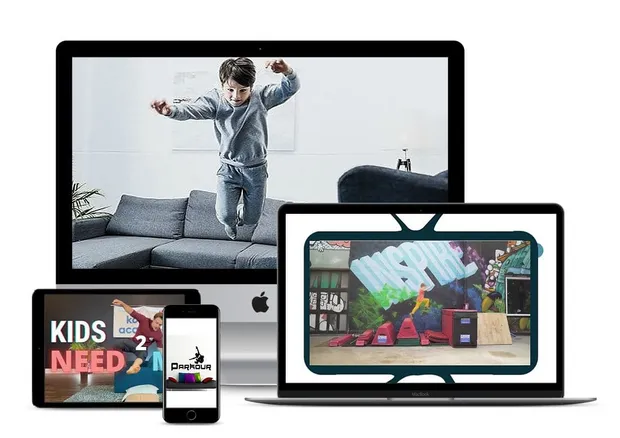

7-Day Crystal Shard Adventure
Unleash your child’s potential with our 7-day crystal shard movement adventure!

